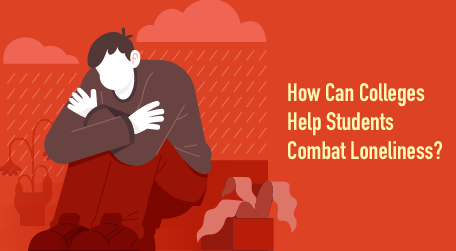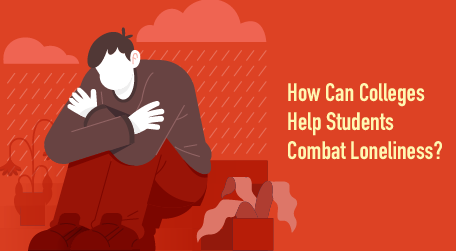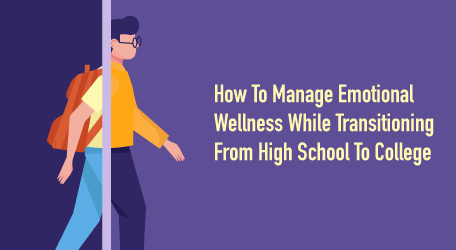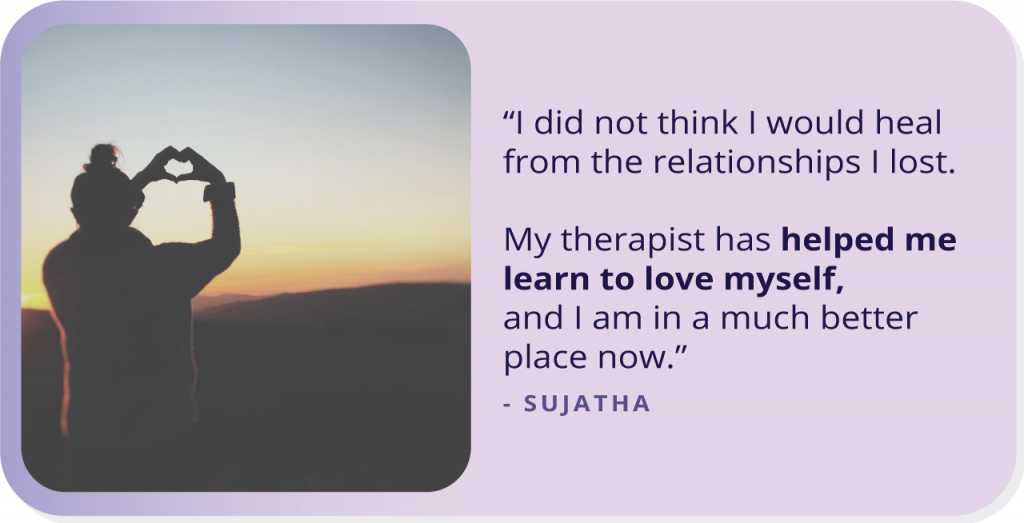
How Can Colleges Help Students Combat Loneliness?

Transitioning from high school to college is a significant milestone, often accompanied by excitement and apprehension. This crucial period, intended to be empowering and transformative, frequently leaves students grappling with an unexpected and pervasive loneliness.
Startlingly, a study reveals that 64% of college students felt lonely. Among them, 46% found it challenging to concentrate on their academic work, and 24% were more susceptible to symptoms of depression. This prevalence of loneliness among our college students is a pressing issue that demands our attention.
Thankfully, many schools are stepping up to the plate and providing additional resources to help students cope with loneliness and isolation. These institutions offer on-campus support and connect students with outside mental health organizations. The fact that college administrations have started prioritizing mental health on campus is a beacon of hope in our battle against student loneliness.
However, ensuring students do not shy away from conversations concerning mental health is equally pivotal. It is vital to build a conducive environment for students to come forward and open up between themselves. This open communication is a suggestion and a responsibility we all share in combating student loneliness.
Why do students feel lonely?
- Adjusting to a new environment: Despite numerous social opportunities, the demanding transition from school to college, which involves rigorous coursework, can impact one’s social relationships. Generally, college students have little time or energy for socialising and making new connections.
- Social pressure: Building and nurturing new friendships can be particularly challenging for students, as they face significant pressure to maintain a good social life while having little time. After decades of movies and books depicting the ease of making new friends in college, the reality can be very different. While some students may quickly establish a social circle, those who don’t can experience intense loneliness.
- Academic stress: College academics are far more rigorous than those in schools, and many bright students might need help in the transition process. This often triggers feelings of self-doubt, which can further reduce the energy and desire to go out and make friends.
Why is there a sudden increase in loneliness among students:
Loneliness among students in India is a growing concern, influenced by various societal and academic factors. The rise of digital technology, while connecting students virtually, often leads to a need for meaningful face-to-face relationships.
Increased academic pressure and competitive environments contribute to stress and isolation. Additionally, the ongoing pandemic has disrupted social routines, limiting face-to-face interactions. To address this, college authorities, parents, and administration must foster supportive environments, encourage open communication, and promote mental health resources. Parents can play a crucial role by maintaining regular communication with their children, understanding their challenges, and providing emotional support.
Research further indicates that loneliness can exacerbate anxiety and depression, creating a vicious cycle that hinders students’ well-being and academic performance. Why do so many students face such emotional turmoil during one of the most promising phases of their lives?
How to deal with loneliness?
- Meet new people: College is a social environment with plenty of opportunities to meet new people. For example, one can join sports, reading or music clubs or some societies like debating, literature, etc., on campus, enabling them to meet like-minded people and encourage them to do something they love or relate to.
- Physical exercise: Physical activity has both physical and emotional benefits, ranging from mood upliftment and increasing self-esteem to improved cardiovascular functioning. Participating in group exercises is also an excellent way to meet new people and build essential social connections. These group activities can foster a sense of belonging and help alleviate loneliness.
- Practise mindfulness: Practicing mindfulness can be a powerful tool for students to combat feelings of loneliness on campus. Mindfulness involves both monitoring your present experiences and accepting them without judgment. When students feel lonely, they can use mindfulness techniques to acknowledge and accept their emotions, reducing the perception of social threats and making them more open to social interactions.
- Healthy lifestyle: Leading a healthy lifestyle and taking self-care measures are essential steps towards combatting loneliness. For example, students should be mindful of their eating and sleeping habits. Skipping meals should be completely avoided because it causes a lack of glucose supply in the body, which can have adverse physical effects. Lack of adequate sleep can also result in emotional and physical distress.
- Seek help: Dealing with social anxiety and isolation can be very overwhelming, but it is essential to take time and accept one’s emotions to seek a way out. Taking professional help can help students battle these negative emotions. It can allow students to explore their identities and focus on their health and well-being. Therapy can also help them understand the root causes of loneliness, enabling them to address these feelings. Additionally, it can provide practical coping skills to encourage them to become more social.
Although it can be challenging to look beyond the feelings of isolation and loneliness, it is crucial to recognise that there is a way out. It’s important to understand that it’s okay to go through such a phase and not blame oneself for it. By making necessary changes and accepting their emotions, one can gradually overcome the negativity and move forward effectively.







